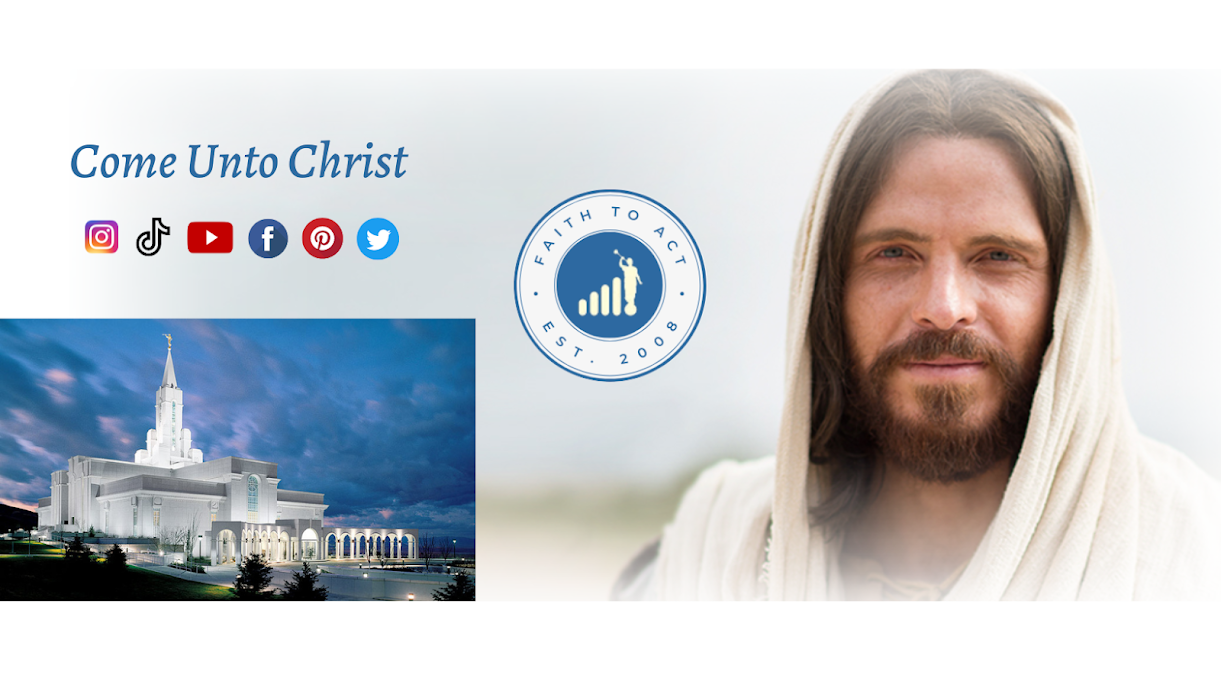Another Testament of Jesus Christ
A BAPTIST PREACHER Shares his witness and testimony of
The Book of Mormon
Dr. Lynn Ridenhour, Southern Baptist minister, guest speaker at Book of Mormon Conference hosted by Pastor Dale Warren, Fairfield Community of Christ, Fairfield, Illinois. Excerpt from Dr. Ridenhour’s sermon, “The Book of Mormon: How Baptist Can You Get!
One Lord, One Faith, One Baptism
I am so excited for this new video series that will walk us through the chapters of The Book of Mormon.
The Lord Commands Lehi's Family to Leave Jerusalem | 1 Nephi 1–2 | Book of Mormon
I have read The Book of Mormon more than a dozen times and love the peace and clarity it brings me. It teaches my family and I to build our home and lives upon the Rock of our salvation, even the Lord, Jesus Christ. It shares several examples of faith and enduring despite challenges. It teaches us about the Atonement and Resurrection. It teaches us about hope and charity. It teaches us about humility and obedience...and so much more! Come Unto Christ and Get a FREE COPY
Names of Christ in
The Book of Mormon
Even statistically, he’s the dominant figure of the Book of Mormon.
The Book of Mormon was preserved to come forth in these latter days to convince “the Jew and Gentile that Jesus is the Christ, the Eternal God.” Its purpose is to verify the divine Sonship of the Nazarene to those who “ask with a sincere heart, with real intent, having faith in Christ.” (Moro. 10:4.)
The divinity of Christ is proclaimed by prophets in the Book of Mormon. They had a conviction of his divinity because the Holy Ghost had revealed it unto them.
Through the instrumentality of the Holy Ghost, these prophets also knew that their writings were to bear testimony that Jesus is the Christ. This they solemnly did, more than I had ever realized. In a word-by-word study, I have found some form of the Lord’s name mentioned an average of every 1.7 verses in the Book of Mormon. (See Table 1.)
I have found that the Savior is referred to by one hundred different names—from the first reference to him as “Lord” in 1 Nephi 1:1 [1 Ne. 1:1] to the final reference to him as “the Eternal Judge” in Moroni 10:34. [Moro. 10:34] (See Table 2.) Each of the one hundred names signifies a different attribute or characteristic of the Lord and was used appropriately to convey the prophets’ recognition of who he is and what his mission represents. For example, “Savior” means that Christ came to save his people from their sins. “Holy One” signifies that he is holy and without sin, being perfect in all things. “God of the Whole Earth” reflects his universal interest in all men and their redemption. “Lord of Hosts” indicates that Christ is a God of battles. And “Lord Omnipotent” means that Christ is the Lord of all, possessing all power. The names given to our Lord take on new significance when they are approached through a thoughtful and sensitive study of their meanings. His profound character, his singular mission, and his divine relationship to man are thereby more clearly revealed.
Further understanding of man’s relationship to Christ, the central figure of the Book of Mormon, occurs through a study of the periods of apostasy, contention, and war. Fewer references to Christ are made during these periods of darkness, probably because his influence is lessened due to the unrighteous actions of man. (See Alma 50–59, for example.) During periods of peace, joy, and prosperity, which come through man’s keeping the commandments, the names of Christ are used profusely, indicating the abundant presence of his Spirit. (See 4 Ne. 1, for example.) Thus, the righteous actions of the people brought the influence and blessings of Christ among them.
Being aware of the number of references to Christ, having an understanding of the meanings for each name, and knowing when his influence can be greatest upon the earth can inspire reverential awe for our Savior. The witness of his divinity, however, must come personally to each of us—we cannot rely exclusively on the testimonies of others. The conviction that Jesus is the Christ occurs only when God, the Eternal Father, manifests the truth of it “by the power of the Holy Ghost.” (Moro. 10:4.) To the prayerful and the sincere, the Book of Mormon bears a powerful testimony that “Jesus is the Christ, the Eternal God.”
~ C.J. Poulsen, Faith To Act



No comments:
Post a Comment